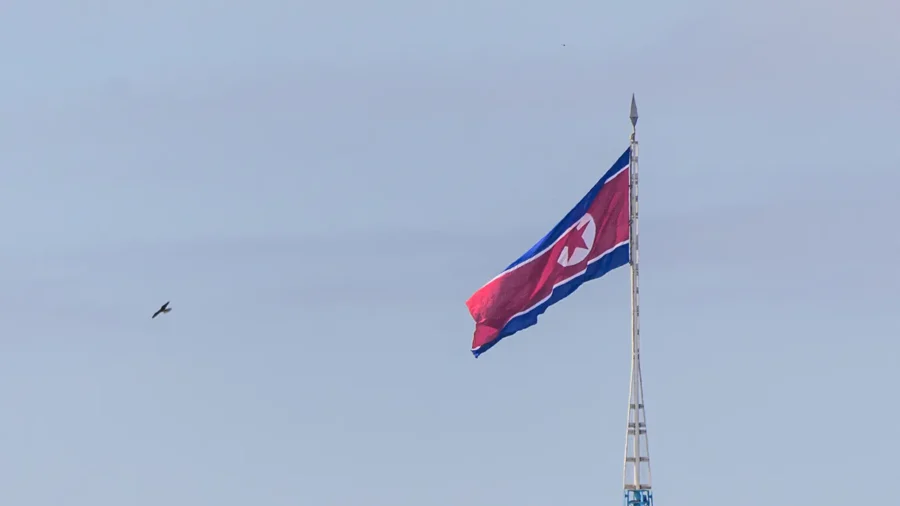SEOUL—North Korea fired a suspected intermediate-range ballistic missile into the sea on Tuesday in a possible test of a new rocket using solid fuel, drawing swift condemnation from South Korea, Japan, and the United States.
South Korea’s military said it detected what appeared to be an intermediate-range ballistic missile launched from an area of the North Korean capital Pyongyang on Tuesday at 6:53 a.m. (2153 GMT on Monday) before plunging into the sea off the east coast.
It flew about 600 km (372 miles) before falling into the sea, South Korea said, while Japan’s defence ministry estimated it covered a distance of 650 km (400 miles) and reached a maximum altitude of 100 km (62 miles).
South Korea’s Joint Chiefs of Staff did not specify the exact type of missile or what type of warhead it may have carried, but North Korea has been testing a new intermediate-range hypersonic missile powered by a solid-fuel engine.
South Korea’s Joint Chiefs of Staff spokesman Lee Sung-jun said the launch was probably “related” to the testing of a recent solid-fuel engine.
In March, North Korean leader Kim Jong Un oversaw a ground test of a solid-fuel engine for a new type of intermediate-range hypersonic missile to develop national defence capability, state media reported.
Japanese Prime Minister Fumio Kishida condemned the launch as damaging to regional and international peace and stability.
The U.S. Indo-Pacific Command said the event did not pose an immediate danger to its troops or allies but condemned it as an unlawful and destabilizing act.
South Korean President Yoon Suk Yeol said the North could try to sow confusion in his country ahead of a parliamentary election this month. He said such an attempt would be futile and that the response to any North Korean aggression would be firm.
US B-52 Bomber Joins Drills
Amid concerns Russia and North Korea are developing closer military links, the United States and its major Asian allies South Korea and Japan are expanding security cooperation.
On Tuesday, aircraft from the three countries conducted air drills that involved a U.S. B-52H strategic bomber to enhance deterrence and counter capabilities against missile and nuclear threats from the North, South Korea said.
Officials in the United States, South Korea, and Ukraine have accused North Korea of providing weapons such as missiles to Russia for use in the Ukraine war. Pyongyang and Moscow have denied the allegations.
South Korea announced sanctions on two Russian vessels that it said had transported munitions between North Korea and Russia, and two Russian organizations involved in hiring North Korean workers to help Pyongyang earn foreign currency, South Korea’s foreign ministry said on Tuesday.
Meanwhile, the United States government is arranging a summit between President Joe Biden and his Japanese and South Korean counterparts in July on the sidelines of a NATO summit in Washington, Japanese media outlets reported.

